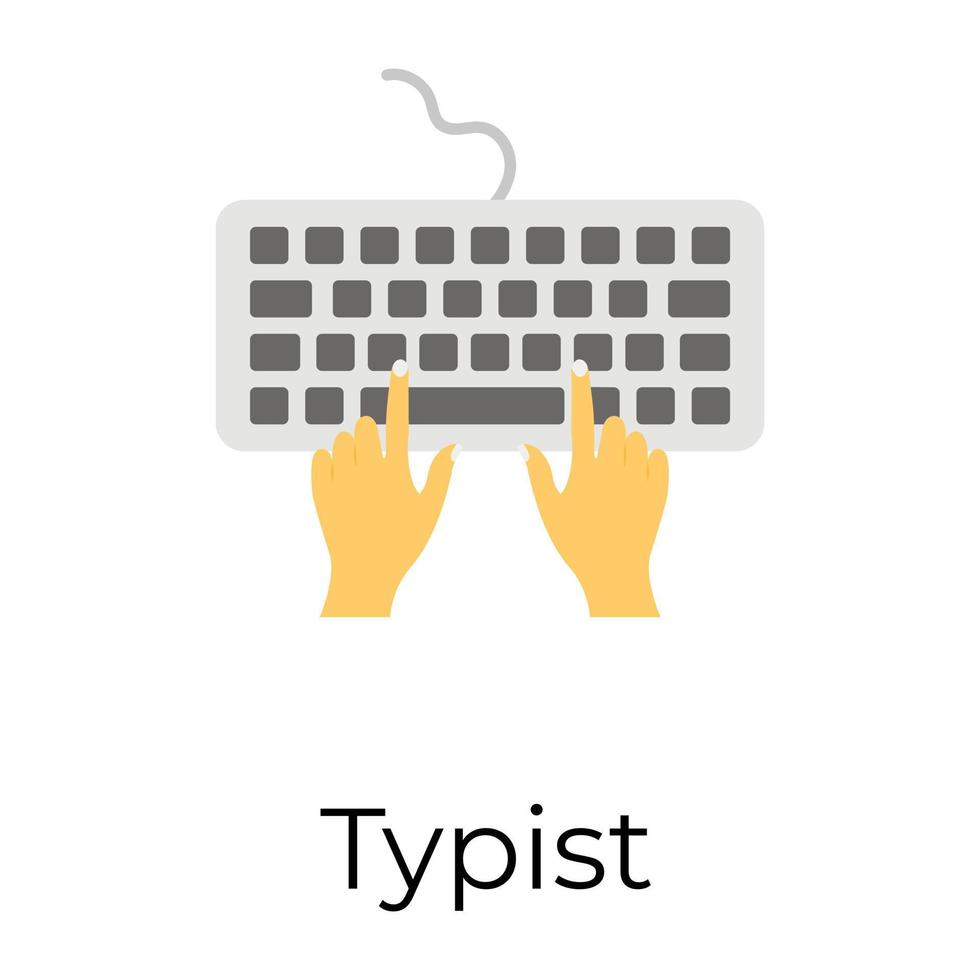The role of a typist has evolved significantly over the years, transitioning from traditional office settings to diverse industries in the digital age. A typist is primarily responsible for producing written documents through typing at a proficient speed while ensuring high levels of accuracy. Typists play a crucial role in assisting various sectors, including legal, medical, educational, and corporate environments, where precise documentation is vital.
In the contemporary workplace, the proliferation of technology has led to an increased demand for skilled typists. Organizations require individuals who can efficiently transcribe information, generate reports, enter data, and maintain records. The ability to navigate word processing software, spreadsheets, and other digital tools is essential for typists today. Consequently, proficiency in typing has become a cornerstone skill for those seeking employment in this field.

Key Responsibilities of a Typist
The role of a typist encompasses a range of responsibilities that are crucial for ensuring smooth and efficient office operations. One of the primary responsibilities is to type various documents, which can include reports, memos, letters, and presentations. Typists must have a proficient typing speed and accuracy to produce these documents within specific deadlines. Additionally, they may be required to transcribe audio recordings or handwritten materials into typed text, demanding not only keyboard skills but also a keen ear for detail and good handwriting recognition.
Another essential duty involves ensuring that all typed materials adhere to established accuracy and formatting standards. This requires typists to possess a solid understanding of grammar, punctuation, and style guidelines to ensure clarity and professionalism in all documents produced. Errors in documentation can lead to misunderstandings; thus, maintaining high standards in typing and formatting is critical to the typist’s role.
Essential Skills and Qualifications
To excel as a typist, individuals must cultivate a specific set of skills and qualifications that not only enhance their performance but also ensure their growth in a competitive environment. One of the paramount skills required is typing speed and accuracy. Most employers expect typists to achieve a minimum typing speed of 60 words per minute, coupled with high precision rates. This proficiency can significantly boost productivity and contribute to the overall efficiency of a workplace.
Another vital aspect is familiarity with word processing software. Proficiency in tools such as Microsoft Word, Google Docs, and other relevant applications is crucial. Typists should not only be able to navigate these platforms but also manipulate formatting, create and edit documents, and utilize templates effectively. Such technical skills are often seen as prerequisites and are indispensable in today’s digital workplaces.

Career Progression and Opportunities in Typing
The profession of typing, while often considered a fundamental administrative skill, offers various pathways for career progression and advancement. Typists serve a critical role in multiple sectors, including legal, medical, and corporate environments, where the demand for accurate and efficient typing services remains high. In these sectors, typists are essential in creating and managing documents, which can range from legal records and medical transcriptions to business correspondence and reports.
As typists gain experience and demonstrate proficiency in their work, they may find opportunities to advance into specialized roles. For instance, in the medical field, experienced typists can transition into medical transcriptionists or health information management roles, where they can contribute more significantly to patient record keeping and data management. Similarly, in the legal sector, career advancement could lead to positions such as paralegal, where typing skills complement knowledge of legal procedures and documentation.



